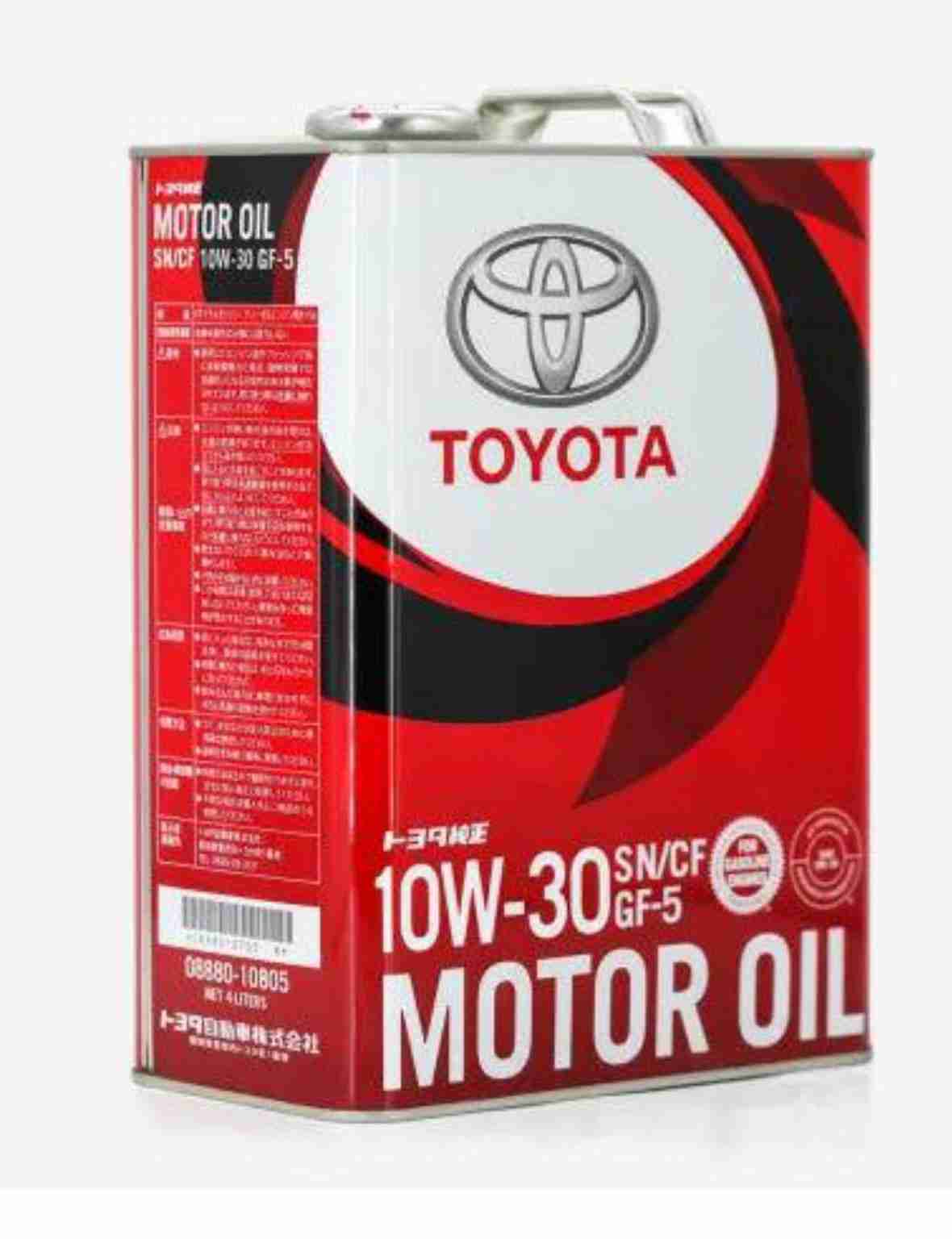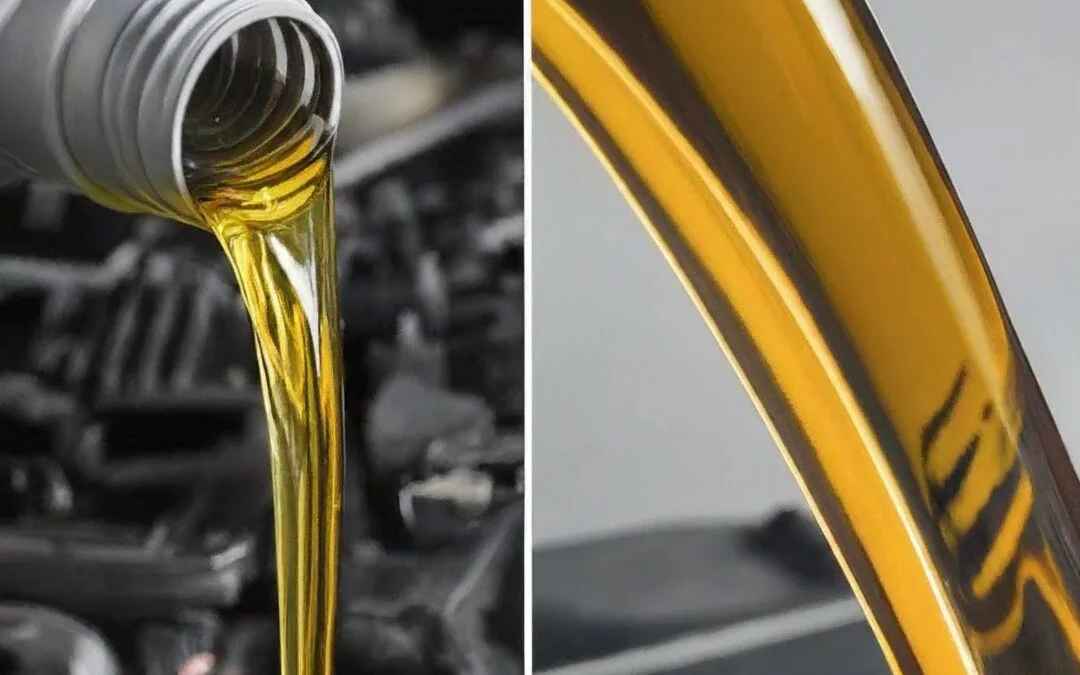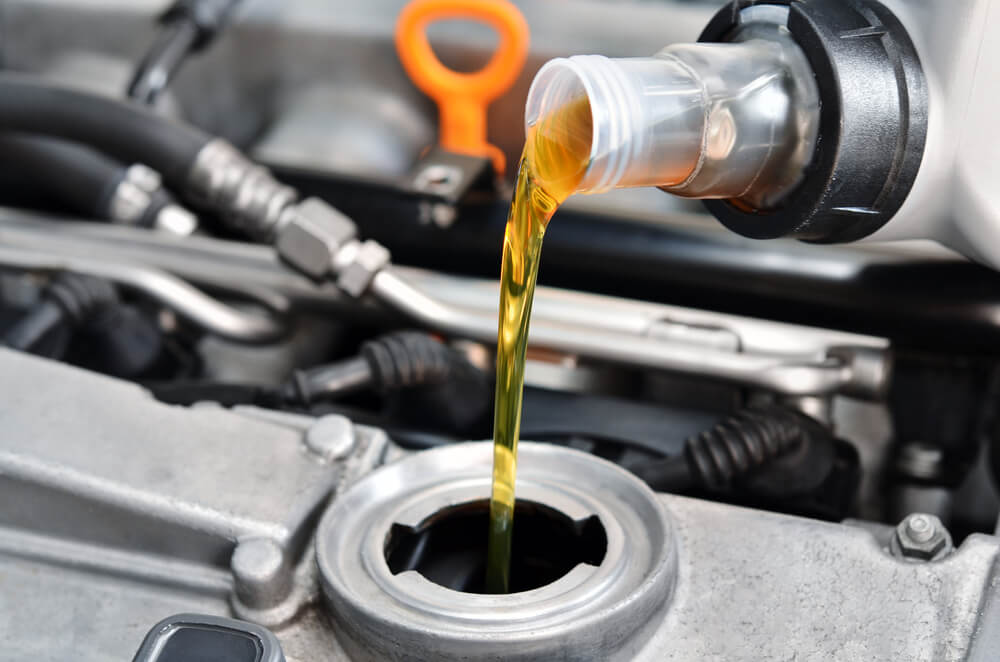Title: Unveiling the Makers of Motor Oil for Toyota: A Behind-the-Scenes Look
Introduction:
Toyota, a renowned automotive manufacturer synonymous with innovation and reliability, entrusts the production of its motor oil to a select group of reputable suppliers. These suppliers undergo stringent vetting processes to ensure they meet Toyota’s rigorous standards for quality, performance, and environmental sustainability. By forging strategic partnerships with top-tier oil producers, Toyota ensures that the lubricants powering their vehicles are crafted with precision and expertise, delivering optimal engine performance and longevity. This commitment to excellence underscores Toyota’s dedication to providing drivers with the utmost reliability and efficiency in every aspect of their driving experience
Understanding the significance of motor oil:
Understanding the significance of motor oil is paramount for every vehicle owner, as it plays a crucial role in maintaining engine health and performance. Motor oil serves as a lubricant, reducing friction between moving parts within the engine. This friction reduction prevents excessive wear and tear, prolonging the engine’s lifespan and ensuring smooth operation.
Moreover, motor oil acts as a coolant, dissipating heat generated by engine operation. By absorbing and carrying away heat, it helps prevent overheating and maintains optimal operating temperatures. This is essential for preventing engine damage and maintaining efficiency.
Additionally, motor oil cleans the engine by capturing and suspending harmful contaminants such as dirt, debris, and combustion by-products. Through its detergency properties, it prevents the buildup of sludge and deposits, thus preserving engine cleanliness and efficiency.
Choosing the right type of motor oil and adhering to regular oil change intervals are crucial aspects of vehicle maintenance. Different engines require specific viscosities and formulations of motor oil to operate efficiently, and neglecting proper oil maintenance can lead to engine damage, decreased performance, and costly repairs.
In essence, understanding the significance of motor oil empowers vehicle owners to make informed decisions about their engine’s health and longevity. By prioritizing proper oil maintenance, drivers can ensure optimal performance, efficiency, and reliability from their vehicles for years to come.
Toyota’s commitment about quality:
Toyota’s commitment to quality stands as a cornerstone of its reputation as a leader in the automotive industry. Rooted in the company’s founding principles of continuous improvement and customer satisfaction, this commitment extends across every facet of Toyota’s operations.
At the heart of Toyota’s quality philosophy is the relentless pursuit of perfection, epitomized by the renowned Toyota Production System (TPS). TPS is a methodology grounded in efficiency, waste reduction, and error prevention, fostering a culture of excellence throughout the organization. By prioritizing quality at every stage of the manufacturing process, from design and engineering to production and beyond, Toyota ensures that each vehicle meets the highest standards of reliability, safety, and performance.
Toyota’s commitment to quality is further exemplified by its rigorous testing and inspection protocols. Each component undergoes meticulous scrutiny to guarantee durability, functionality, and adherence to strict quality benchmarks. Additionally, Toyota maintains stringent supplier partnerships, collaborating only with those who share its unwavering dedication to excellence.
Moreover, Toyota’s commitment to quality extends beyond the factory floor. The company remains steadfast in its dedication to customer satisfaction, actively seeking feedback and continuously improving its products and services based on real-world experiences. This customer-centric approach fosters trust and loyalty, reinforcing Toyota’s position as a brand synonymous with reliability and dependability.
Unveiling the suppliers of toyota’s motor oil:
Unveiling the suppliers of motor oil is a critical step in understanding the meticulous care and precision behind the lubricants that power our vehicles. For renowned automotive manufacturers like Toyota, selecting the right suppliers is paramount to ensure the highest standards of quality, performance, and reliability.
A. Exploration of Toyota’s partnerships and supply chain:
Exploring Toyota’s partnerships and supply chain unveils a sophisticated network of collaboration and efficiency, pivotal to its global success in the automotive industry. Toyota’s strategic partnerships extend beyond mere transactions; they embody shared values, innovation, and a commitment to excellence.
At the core of Toyota’s supply chain strategy is the concept of “kaizen” or continuous improvement, deeply ingrained in its renowned Toyota Production System (TPS). This philosophy fosters a culture of innovation and efficiency, driving Toyota and its partners to constantly refine processes, enhance quality, and reduce waste.
Toyota’s partnerships span the globe, encompassing a diverse array of suppliers, manufacturers, and technology providers. These partners undergo rigorous vetting processes to ensure alignment with Toyota’s stringent quality, sustainability, and ethical standards. By fostering long-term relationships based on trust and mutual benefit, Toyota cultivates a robust supply chain capable of delivering the highest quality components and materials to its assembly plants worldwide.
Moreover, Toyota’s commitment to innovation extends to its partnerships with technology companies and research institutions. Collaborations in areas such as advanced materials, autonomous driving, and alternative propulsion systems enable Toyota to stay at the forefront of technological advancement, driving future mobility solutions and enhancing the driving experience for customers.
Transparency and sustainability are also key priorities in Toyota’s supply chain management. The company actively engages with suppliers to promote responsible sourcing practices, minimize environmental impact, and uphold ethical labor standards throughout the supply chain.
B. Identification of key motor oil manufacturers for Toyota:
Identifying the key motor oil manufacturers for Toyota unveils a comprehensive network of strategic partnerships carefully cultivated to uphold Toyota’s unwavering commitment to quality, performance, and customer satisfaction. These manufacturers, chosen through meticulous evaluation processes, play a critical role in ensuring that every Toyota vehicle operates at its peak efficiency and longevity.
- ExxonMobil: As one of the largest publicly traded international oil and gas companies, ExxonMobil brings decades of expertise and technological innovation to its partnership with Toyota. Known for its flagship motor oil brands like Mobil 1, ExxonMobil is recognized for its advanced lubricant formulations designed to optimize engine performance and protect against wear and tear.
- Shell: Shell is a global leader in the energy sector, renowned for its comprehensive portfolio of lubricants and greases. Through its partnership with Toyota, Shell provides high-quality motor oils that meet Toyota’s rigorous specifications for reliability, efficiency, and environmental sustainability. Shell’s commitment to innovation and continuous improvement aligns seamlessly with Toyota’s values, ensuring that customers receive top-tier lubrication solutions.
- Castrol: Castrol is a leading provider of lubricants and automotive fluids, renowned for its cutting-edge research and development capabilities. Through its partnership with Toyota, Castrol delivers specialized motor oil formulations tailored to meet the specific needs of Toyota vehicles. With a focus on performance, durability, and fuel efficiency, Castrol’s products contribute to the overall reliability and longevity of Toyota engines.
- Chevron: Chevron is a multinational energy corporation recognized for its Chevron, Havoline, and Delo motor oil brands. In collaboration with Toyota, Chevron supplies high-quality lubricants formulated to meet Toyota’s exacting standards for engine protection and performance. Chevron’s commitment to sustainable practices and environmental stewardship aligns with Toyota’s vision for a greener automotive industry.
- Total: Total is a global energy company with a diverse portfolio of lubricants and specialty fluids. Through its partnership with Toyota, Total provides advanced motor oil solutions designed to enhance engine performance and reliability. Total’s emphasis on research and innovation ensures that its lubricants deliver exceptional results in Toyota vehicles across the globe.
These key motor oil manufacturers undergo rigorous evaluation and testing to ensure that their products meet Toyota’s stringent quality standards. By partnering with industry leaders like ExxonMobil, Shell, Castrol, Chevron, and Total, Toyota maintains its reputation for reliability, performance, and customer satisfaction, ensuring that drivers experience the utmost confidence and peace of mind behind the wheel of every Toyota vehicle.
C. Factors influencing Toyota’s selection of motor oil suppliers:
Several key factors influence Toyota’s selection of motor oil suppliers, reflecting the company’s unwavering commitment to quality, sustainability, and customer satisfaction. By meticulously evaluating potential partners, Toyota ensures that its vehicles are powered by lubricants of the highest caliber, capable of delivering optimal performance and longevity. Here are the primary factors that influence Toyota’s selection process:
- Quality Standards: Toyota maintains stringent quality standards for all components used in its vehicles, including motor oil. Suppliers must demonstrate a proven track record of producing lubricants that meet or exceed Toyota’s exacting specifications for performance, durability, and reliability.
- Technological Expertise: Toyota seeks suppliers with advanced research and development capabilities and a commitment to innovation. Partners should possess the technical expertise necessary to develop cutting-edge lubricant formulations that enhance engine efficiency, reduce friction, and prolong component life.
- Environmental Sustainability: Environmental responsibility is a core value for Toyota. Suppliers must adhere to stringent environmental standards, minimizing their carbon footprint and implementing sustainable practices throughout the production process. Preference is given to suppliers who prioritize eco-friendly sourcing, manufacturing, and packaging methods.
- Global Presence and Supply Chain Reliability: Toyota operates on a global scale, and its suppliers must have the capacity to support its production facilities worldwide. Suppliers with a robust global presence and a well-established supply chain network are preferred, ensuring timely delivery of motor oil products to meet Toyota’s production schedules and customer demand.
- Cost-Effectiveness: While quality is paramount, Toyota also considers the cost-effectiveness of motor oil suppliers. Partners must offer competitive pricing structures without compromising on quality or reliability. Toyota seeks to establish mutually beneficial partnerships that deliver value for both parties.
- Ethical and Compliance Standards: Toyota places a strong emphasis on ethical business practices and compliance with applicable laws and regulations. Suppliers must adhere to strict ethical standards regarding labor practices, human rights, and corporate governance.
- Long-Term Relationship Potential: Toyota values long-term partnerships based on trust, collaboration, and mutual respect. Suppliers capable of fostering enduring relationships and adapting to evolving market demands are preferred.
By carefully evaluating these factors, Toyota selects motor oil suppliers that align with its core values and contribute to the overall quality and reliability of its vehicles. These partnerships play a crucial role in upholding Toyota’s reputation as a leader in the automotive industry, delivering exceptional value and satisfaction to customers worldwide.
Quality Assurance and Standards:
Quality assurance and standards are paramount in every aspect of Toyota’s operations, ensuring that every vehicle manufactured meets the highest levels of excellence, reliability, and safety. At the core of Toyota’s philosophy is a relentless commitment to quality, ingrained in its DNA since its inception. This commitment is reflected in Toyota’s comprehensive quality assurance processes and adherence to rigorous standards throughout the production cycle.
Toyota’s quality assurance begins with meticulous design and engineering, where every component is carefully scrutinized to meet or exceed stringent specifications. Advanced simulation and testing techniques are employed to validate performance, durability, and safety under various conditions, ensuring that each vehicle delivers optimal performance and reliability.
Throughout the manufacturing process, Toyota implements a range of quality control measures to maintain consistency and precision. From automated production lines to manual inspections, every step is monitored to identify and address potential defects or deviations from standards. Continuous improvement is a key tenet of Toyota’s quality assurance approach, with employees empowered to identify opportunities for optimization and refinement.
Furthermore, Toyota collaborates closely with its network of suppliers to uphold quality standards across the supply chain. Suppliers undergo rigorous evaluation and auditing processes to ensure compliance with Toyota’s strict quality requirements and ethical standards. This collaborative approach fosters trust and transparency, ensuring that only the highest quality components and materials are used in Toyota vehicles.
In addition to internal quality assurance measures, Toyota adheres to industry-leading standards and certifications to validate its commitment to excellence. From ISO 9001 for quality management systems to ISO 14001 for environmental management, Toyota’s adherence to these standards underscores its dedication to continuous improvement and sustainability.
Customer feedback is also integral to Toyota’s quality assurance efforts. Through extensive market research, customer surveys, and real-world testing, Toyota gathers valuable insights to inform product development and refinement. This customer-centric approach ensures that Toyota vehicles not only meet but exceed customer expectations for quality, reliability, and satisfaction.
Environmental and sustainability considerations are integral components of Toyota’s corporate ethos, guiding its actions and decisions across all facets of its operations. As a global leader in the automotive industry, Toyota recognizes its responsibility to minimize environmental impact and promote sustainable practices throughout the entire product lifecycle.
Environmental and Sustainability Considerations:
One of Toyota’s primary focuses is reducing carbon emissions and energy consumption in its manufacturing processes. The company has implemented innovative technologies and practices to enhance energy efficiency, decrease waste, and lower greenhouse gas emissions at its production facilities worldwide. This commitment to sustainability extends to Toyota’s supply chain, where it collaborates with suppliers to promote eco-friendly sourcing, manufacturing, and transportation methods.
Toyota is also dedicated to advancing vehicle electrification and reducing dependency on fossil fuels. The company has made significant investments in research and development to develop hybrid, plug-in hybrid, electric, and fuel cell vehicles. These eco-friendly alternatives not only reduce emissions but also contribute to improved air quality and decreased reliance on finite natural resources.
Furthermore, Toyota is actively involved in promoting recycling and circular economy initiatives. The company designs its vehicles with recyclability in mind, utilizing materials that are easier to dismantle and recycle at the end of their lifecycle. Toyota also encourages recycling programs for end-of-life vehicles, ensuring that valuable materials are recovered and reused to minimize waste and conserve resources.
In addition to its efforts within its own operations, Toyota engages in community outreach and environmental stewardship initiatives. Through partnerships with environmental organizations, educational programs, and community projects, Toyota strives to raise awareness about environmental issues and inspire positive change.
Moreover, Toyota continuously evaluates and improves its sustainability performance through rigorous measurement and reporting. The company sets ambitious sustainability targets and regularly tracks progress toward goals related to carbon reduction, water conservation, biodiversity preservation, and more.
Consumer Awareness and Education:
Consumer awareness and education are paramount in Toyota’s commitment to fostering informed and empowered drivers. As a leading automotive manufacturer, Toyota recognizes the importance of providing consumers with comprehensive information and resources to make educated decisions about their vehicles.
Toyota invests in a range of initiatives to raise consumer awareness about various aspects of vehicle ownership, including safety, maintenance, and environmental impact. Through digital platforms, educational materials, and interactive tools, Toyota equips consumers with the knowledge they need to make informed choices throughout the car-buying process.
One of Toyota’s primary focuses is safety education. The company provides extensive resources on vehicle safety features, crash prevention technologies, and safe driving practices. Through online portals, brochures, and instructional videos, Toyota educates consumers about the importance of seat belt usage, proper child seat installation, and defensive driving techniques.
Furthermore, Toyota offers comprehensive information on vehicle maintenance and care. From recommended service intervals to DIY maintenance tips, Toyota empowers consumers to keep their vehicles in optimal condition for safety, performance, and longevity. Through workshops, webinars, and service clinics, Toyota also educates consumers about the importance of regular maintenance tasks such as oil changes, tire rotations, and brake inspections.
Environmental awareness is another key aspect of Toyota’s consumer education efforts. The company provides information on fuel efficiency, emissions reduction technologies, and alternative fuel options to help consumers make environmentally conscious choices. Toyota also offers resources on eco-friendly driving habits, such as maintaining steady speeds, avoiding aggressive acceleration and braking, and minimizing idling.
In addition to these efforts, Toyota actively engages with consumers through social media channels, community events, and experiential marketing initiatives. By fostering dialogue and interaction, Toyota creates opportunities for consumers to ask questions, share experiences, and learn from one another in a supportive and collaborative environment.
Overall, Toyota’s commitment to consumer awareness and education reflects its dedication to safety, sustainability, and customer satisfaction. By providing consumers with the tools and information they need to make educated decisions, Toyota empowers drivers to maximize the value and enjoyment of their vehicles while promoting a safer, cleaner, and more sustainable future for all.
Conclusion:
In conclusion, the production of motor oil for Toyota vehicles involves a meticulous selection process, ensuring that only the highest quality lubricants are utilized. While specific suppliers may vary, Toyota collaborates with trusted partners renowned for their expertise, commitment to excellence, and adherence to strict quality standards. These partnerships underscore Toyota’s unwavering dedication to delivering exceptional performance, reliability, and customer satisfaction. Ultimately, whether it’s ExxonMobil, Shell, or other reputable manufacturers, the motor oil used in Toyota vehicles reflects the brand’s legacy of innovation, quality, and dependability, ensuring drivers experience the utmost confidence and peace of mind on every journey.
Useful links:
https://www.toyota.lk/spare_part/toyota-genuine-motor-oil/
Frequently Asked Questions about Who Makes Motor Oil for Toyota
Who manufactures motor oil for Toyota vehicles?
- Toyota collaborates with several reputable motor oil manufacturers to supply lubricants for its vehicles. These include well-known companies like ExxonMobil, Shell, Castrol, Chevron, and Total, among others.
2. How does Toyota select its motor oil suppliers?
- Toyota selects its motor oil suppliers through a rigorous evaluation process. Suppliers must meet Toyota’s stringent standards for quality, performance, sustainability, and ethical practices.
3. What factors influence Toyota’s choice of motor oil suppliers?
- Factors influencing Toyota’s selection of motor oil suppliers include quality standards, technological expertise, environmental sustainability practices, global presence and supply chain reliability, cost-effectiveness, ethical and compliance standards, and long-term relationship potential.
4. Are Toyota’s motor oil suppliers environmentally responsible?
- Yes, Toyota places a strong emphasis on environmental responsibility and sustainability. The company collaborates with motor oil suppliers who prioritize eco-friendly practices, minimize their carbon footprint, and adhere to strict environmental standards.
5. Can I use any motor oil in my Toyota vehicle?
- While many motor oils may meet the minimum requirements for use in Toyota vehicles, it’s recommended to use motor oil that meets Toyota’s specifications for optimal performance and engine longevity. Consult your vehicle’s owner’s manual or a Toyota dealership for specific recommendations.
6. Where can I find information about the motor oil used in my Toyota vehicle?
- Information about the motor oil recommended for your Toyota vehicle can typically be found in the owner’s manual or on the Toyota website. You can also consult a Toyota dealership or contact Toyota customer service for assistance.
7. Are there any benefits to using motor oil recommended by Toyota?
- Yes, using motor oil recommended by Toyota ensures compatibility with your vehicle’s engine and helps maintain warranty coverage. Toyota-recommended motor oils are specifically formulated to meet the unique performance requirements of Toyota vehicles, providing optimal protection and performance.
8. Can I purchase motor oil directly from Toyota?
- Yes, Toyota dealerships typically offer motor oil and other maintenance products for sale. You can also find Toyota-approved motor oil at various automotive retailers and online stores.
9. How often should I change the motor oil in my Toyota vehicle?
- The frequency of oil changes can vary depending on factors such as vehicle model, driving conditions, and oil type. Refer to your vehicle’s owner’s manual for recommended oil change intervals, and follow the maintenance schedule provided by Toyota.
10. Does using motor oil recommended by Toyota affect my vehicle’s warranty?
- Using motor oil recommended by Toyota helps ensure warranty coverage for your vehicle’s engine. Deviating from Toyota’s recommendations may void certain aspects of your warranty, so it’s important to use the appropriate motor oil to maintain warranty protection.





Leave a Reply